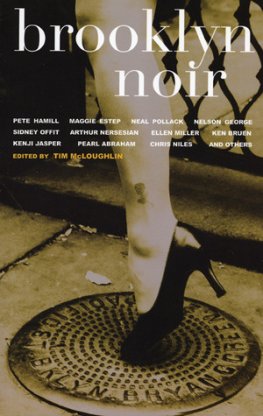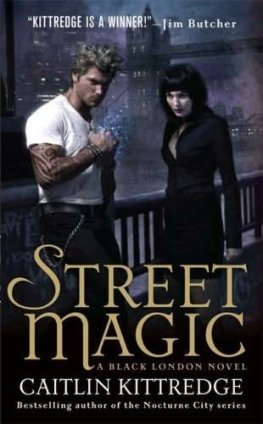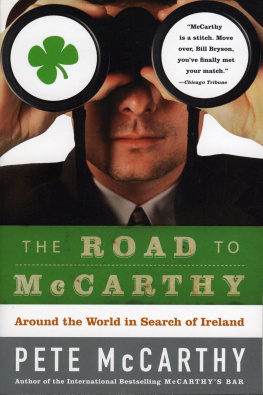CHAPTER 1
C OPIAGUE, Long Island: a rain-spattered spring day in 1974. The long block called Eastgate, lined snugly with simple tract homes, had a mask of moderately resolved ambition. It was an hours drive from the dirt and tension of Manhattan; many of its residents, new immigrants from the larger city, would have preferred even greater distance. A light breeze swept off a broad area of adjoining schoolyards where the block ended, washing through young trees, bending geraniums and ivy in the window boxes and small gardens.
This was a dream street, usually an easy and comfortable place, caught impatiently in the wake of the cold season. The weather had kept the children inside too long. Easter Sunday had come and gone, and the skies were still cloaked in a lions winter mane, forcing husbands home through unseasonable storms. It was a spring that suggested mythic discontentnatures furies loosed, dark clouds overhead, grey mist at night.
In another era Eastgates neighbors might have known why.
For strange trouble had come to their community. A New York City policeman living with his guns and his family at the far end of the block was caught in some kind of fearful crisis. There had been reports of a strange gun battle, then rumors of an attempt to murder a state official. The papers talked of stolen heroin, police corruption, rogue cops. The headlines were huge; the policeman was at the center of the scandal.
And from his house came only silence. He was known to be inside, stalking about as if possessed.
Nestled against the schoolyards, the policemans house seemed tall in the fading light. It was swollen at the top by a dormer addition, a symbol of the cops ambition. Hed built the addition evenings after work and in spare weekends with the help of his friends, and on this particular night the new master bedroom was already completed; the adjoining bathrooms essential plumbing newly installed.
But the work had stopped with the bathroom unfinished. It remained a space of exposed plaster board and random pipe fittingsa place where he loitered when he wanted to be alone, perhaps to consider the irony of his life.
His name was Pete Bon Viso. He was 25, and the house was his pride and accomplishment. Two years earlier, hed bought itin shambles, deserted, long foreclosedas the nugget of his dream of escaping an urban poor past. Pete and his equally city-bred wife, Helen, had renovated and furnished the house to fulfill their choicest fantasies. The pine-paneled living room looked as though they had run amok in an airport novelty shop. One wall featured a mass produced print of a rocky, surf-lashed seashore. The room itself swarmed with gadgetry: toy trains, a Federal eagle over the fireplace, antique pistol wine bottles, a Bavarian drinking stein, a tank filled with decorative feathers, countless other knickknacks. Sitting on the beige corduroy sofa planted in deep green wall-to-wall carpeting, a visitor might look first toward the rear of the house. In a rambling space encompassing two former bedrooms was the new recreation room: vinyl-asbestos slate-look tiles, Spanish Oak false ceiling beams against a white stucco ceiling, two wine racks, a dart board, a huge walnut paneled bar with an ice bucket shaped like a knights helmet. And, behind the bar, scores of framed picturesfriends and relatives smiling, showing off, sitting at night club tables, clinking glasses, standing at family gatherings, awkward in the cameras eye but happy, even proud.
The young cop, in turn, was proud of all he had put together. The house was his plumage, his place in the American dream.
At dinners end this night, curly-haired Billy Bon Viso, five months old, lay in his bassinet, gurgling and groping for his toys. The boys room, designed and constructed by his father, had red burlap-covered walls with wooden lattice work hiding its seams. Pete had put Billys white crib in the corner, a small chair next to it, a blue crushed-velvet rug on the floor. Next, hed thumbtacked cardboard cutouts of Disney characters onto the burlap: Mickey Mouse, Goofy, Donald Duck, Snow White. Hed put a wind-up mobile over the crib, and then he had framed Billys birth certificate and hung it. A small comic policeman stood on the dresser and held a stop sign. The rooms colors were red, white and blue. Pete wanted his son to be an all American kid.
By late evening, after the long days rain, a thick mist rose. It settled over the block in a wet, tubercular breath, cutting off contact with the outside world. Patches of yellow hung from the street lamps, and the houses lights peered like swollen eyes into the darkness.
Pete Bon Viso had spent the day on the living room floor, propped up by a mock leopard-skin pillow, sheltered by a comforter, bare-chested and without shoes. Hed risen at noon, eaten listlessly, then checked the basketball scores, even though he wasnt betting basketball this year. He searched next for the daily pari-mutual number and checked yesterdays triple for the trotters, a habit more than anything else. He didnt like the horses that much, either.
He had said little to Helen as he idled and fidgeted, turning the newspapers pages without seeing them. In mid-afternoon Pete and Helen had watched a detective movie on television. Afterward, he wandered into the bathroom to wash his hands, re-comb his hair and stare at his unshaven, lately chalky face. When Helen asked about his gloom, he talked vaguely of the pressure. Nothing more.
Bon Viso, in Italian, means good visionmore loosely translated, good face. Petes full name was Peter John Bon Viso, and his face was a collection of striking features: bushy eyebrows joined over a large Roman nose, drooping mustache, black cats eyes. Above all, the large anxious eyes, both predatory and frightened. The face also accommodated a hotbed of moods. He could be a clowning street kid, a protective father radiating warmth and affection, a loving husband. But without warning, he might plummet into a powerful depression, wallowing for hours in bottomless sadness and silence. And the eyes, surfacing in the midst of it, would betray the reason.
It was the fear. Sometimes it fairly raged in him. It made his face flow and fume up like a skillet left too long over a fire. Most of the time, sometimes with great pain, he kept the fear sputtering just below the surface, where it gnawed viciously at him. He lived with this fear every moment of his life: in the streets, where he often sensed danger; at the gambling tables, when he faced major losses. At any time, his temperature might rise perceptibly at the thought of rejection by loved ones, or the ridicule of a vague public. Always, it was important to him to hide this. Sometimes he covered his passion with laughter and pranks. Failing that, he assumed a mask of silence, which meant the fire was rising.
Tonight, Petes face carried that desperate silence again, a blankness devoid of all laughter.
For Victorio Sanchez was comingagain. Somewhere in a dark well of feelings, Pete knew this. He knew that the man was coming to kill him, even though the act made no sense to him. He did not know when Sanchez would come, but he knew it would be soon, and he knew he must fight. He had an arsenal waiting: two hunting rifles, a twelve-gauge shotgun, three handguns, a sawed-off shotgun. And he had hundreds of rounds of ammunition stored in strategic places around the house.
No one had phoned today. A telephone was Pete Bon Visos lifeline. Telephones rang for him. It was a thing of his. He liked making calls, and he liked getting them. Each day of his life, he called nearly everyone he knew, just to connect. He had to be sure that things were in place, and that he was abreast of any changes.
But today the phone was not used. Happily, of course, there were none of the frightening calls: slow, heavy breathing... and no voice. Theyd scared Helen so badly that Pete had changed the telephone number. But the comforting calls were missing as well.











